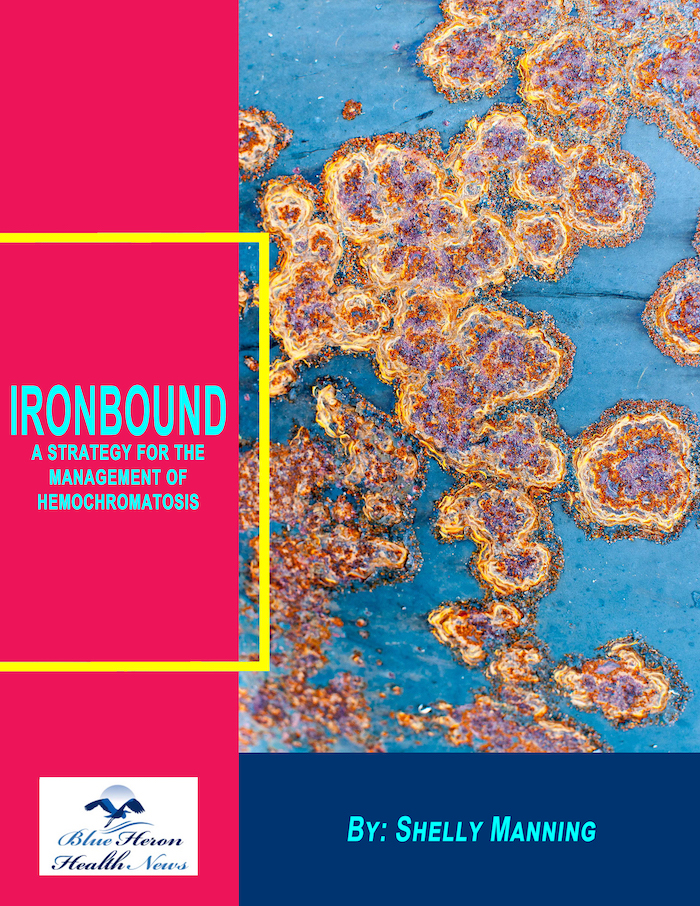
Ironbound™ A Strategy For The Management Of Hemochromatosis by Shelly Manning if you are suffering from the problems caused by the health condition of HCT due to excess amount of iron in your body then instead of using harmful chemical-based drugs and medications you are recommended to follow the program offered in Ironbound Shelly Manning, an eBook. In this eBook, she has discussed 5 superfoods and other methods to help you in reducing the level of iron in your body in a natural manner. Many people are benefited from this program after following it consistently.
How do certain medications affect iron absorption?
Certain medications can significantly affect iron absorption, either by interfering with the mechanisms that facilitate iron uptake in the gastrointestinal tract or by altering the stomach’s environment in ways that hinder iron absorption. Here’s a detailed look at how various medications influence iron absorption:
1. Antacids and Acid-Reducing Medications
Proton Pump Inhibitors (PPIs)
- Mechanism: PPIs, such as omeprazole, lansoprazole, and esomeprazole, reduce stomach acid production by inhibiting the hydrogen-potassium ATPase enzyme in the stomach lining.
- Impact on Iron Absorption: Iron, especially non-heme iron found in plant-based foods, requires an acidic environment to be converted into its ferrous form, which is more readily absorbed. By reducing stomach acidity, PPIs decrease the solubility and absorption of dietary iron.
- Examples: Omeprazole, esomeprazole, lansoprazole.
H2 Receptor Antagonists
- Mechanism: H2 blockers, such as ranitidine and famotidine, decrease stomach acid production by blocking histamine receptors in the stomach.
- Impact on Iron Absorption: Similar to PPIs, reduced stomach acidity from H2 blockers can impair the conversion of dietary iron to its absorbable form.
- Examples: Ranitidine, famotidine, cimetidine.
Antacids
- Mechanism: Antacids, such as those containing aluminum hydroxide, magnesium hydroxide, or calcium carbonate, neutralize stomach acid.
- Impact on Iron Absorption: By increasing the pH of the stomach, antacids can reduce the solubility of iron and its absorption.
- Examples: Tums (calcium carbonate), Maalox (aluminum hydroxide, magnesium hydroxide).
2. Chelating Agents
Medications
- Mechanism: Certain medications, such as tetracycline antibiotics and some quinolone antibiotics, can bind to iron in the gastrointestinal tract, forming insoluble complexes that are not absorbed.
- Impact on Iron Absorption: These medications effectively reduce the amount of free iron available for absorption.
- Examples: Tetracycline, ciprofloxacin, doxycycline.
3. Cholestyramine
Mechanism
- Mechanism: Cholestyramine is a bile acid sequestrant used to lower cholesterol. It binds bile acids in the intestine, preventing their reabsorption.
- Impact on Iron Absorption: This binding can also interfere with the absorption of fat-soluble vitamins and minerals, including iron, by altering the composition of the intestinal contents.
- Example: Cholestyramine (Questran).
4. Phosphate Binders
Mechanism
- Mechanism: Phosphate binders, such as calcium acetate and sevelamer, are used to control high phosphate levels in patients with chronic kidney disease. They bind dietary phosphate in the gut to prevent its absorption.
- Impact on Iron Absorption: These binders can also bind to dietary iron, reducing its absorption.
- Examples: Calcium acetate (PhosLo), sevelamer (Renvela).
5. Certain Antibiotics
Mechanism
- Mechanism: Some antibiotics, particularly those in the tetracycline and fluoroquinolone classes, can chelate iron, forming complexes that are poorly absorbed.
- Impact on Iron Absorption: This reduces the bioavailability of both the iron and the antibiotic, potentially compromising the effectiveness of the antibiotic and leading to iron deficiency if used long-term.
- Examples: Tetracycline, ciprofloxacin, doxycycline.
6. Other Medications
Nonsteroidal Anti-Inflammatory Drugs (NSAIDs)
- Mechanism: While NSAIDs like ibuprofen and aspirin don’t directly affect iron absorption, they can cause gastrointestinal irritation and bleeding.
- Impact on Iron Levels: Chronic use of NSAIDs can lead to blood loss through the GI tract, contributing to iron deficiency anemia.
- Examples: Ibuprofen (Advil, Motrin), aspirin.
Strategies to Mitigate the Impact on Iron Absorption
Timing of Medication
- Separate Intake: Taking iron supplements or iron-rich foods at different times from these medications can help minimize their interaction. For example, taking iron supplements two hours before or four hours after taking antacids or antibiotics can improve iron absorption.
Dietary Adjustments
- Enhance Iron Absorption: Consuming vitamin C-rich foods (like citrus fruits, tomatoes, and bell peppers) with iron-rich meals can enhance non-heme iron absorption.
- Avoid Inhibitors: Avoid consuming iron inhibitors, such as tea, coffee, and high-calcium foods, at the same time as iron-rich foods or supplements.
Monitoring and Supplementation
- Regular Monitoring: Regular blood tests to monitor iron levels can help detect and address iron deficiency early, especially in individuals on long-term medications that affect iron absorption.
- Iron Supplementation: In some cases, healthcare providers may recommend intravenous iron supplementation to bypass gastrointestinal absorption issues.
Conclusion
Various medications can affect iron absorption by altering stomach acidity, binding to iron, or causing gastrointestinal issues that lead to blood loss. Understanding these interactions and taking steps to mitigate their impact can help maintain adequate iron levels and prevent iron deficiency anemia. Patients should work with their healthcare providers to manage their iron intake and monitor their iron status, especially when on long-term medication regimens.
Ironbound™ A Strategy For The Management Of Hemochromatosis by Shelly Manning if you are suffering from the problems caused by the health condition of HCT due to excess amount of iron in your body then instead of using harmful chemical-based drugs and medications you are recommended to follow the program offered in Ironbound Shelly Manning, an eBook. In this eBook, she has discussed 5 superfoods and other methods to help you in reducing the level of iron in your body in a natural manner. Many people are benefited from this program after following it consistently.